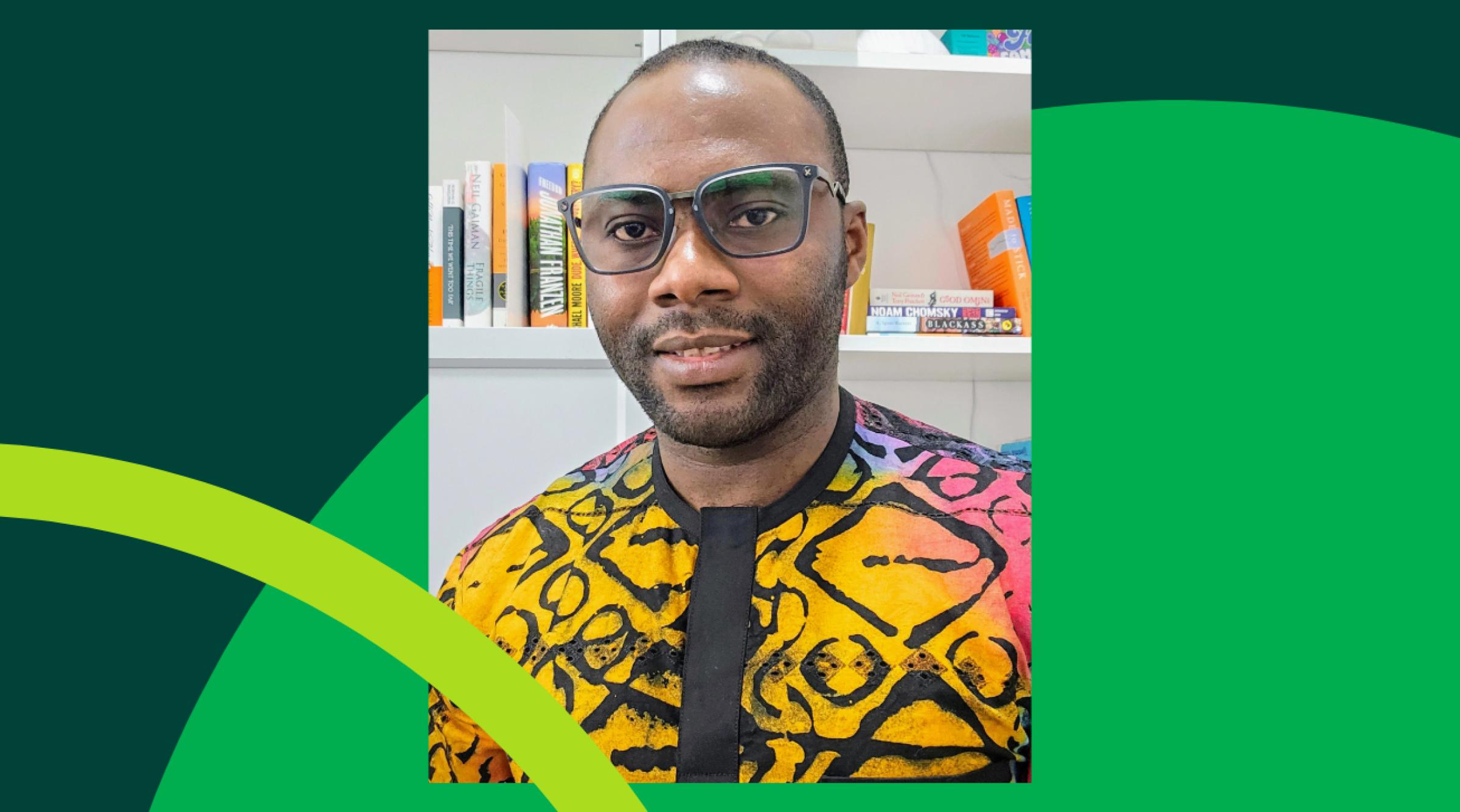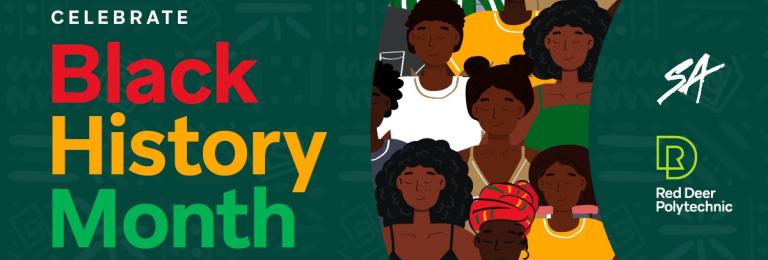Black History Month Blog Series: Isaac Nyamekye

Meet Issac Nyamekye, Executive Director of Institutional Planning at RDP.
First, Isaac describes his experience as a member of the Black community in Central Alberta andas an employee at Red Deer Polytechnic?
"My journey as a Black leader at Red Deer Polytechnic has been both enriching and nuanced. As a Ghanaian immigrant, I bring a deep appreciation for community and collaboration rooted in my upbringing —principles I've found reflected in many of my interactions at RDP. Colleagues have consistently demonstrated openness, support, and a shared commitment to fostering meaningful connections and collaboration. The recent launch of RDP's EDI plan and the creation of advisory committees also show the institution's commitment to further enhancing inclusivity and a sense of belonging among staff, faculty, students and partners. While I've found RDP welcoming, I have also had to navigate some unique challenges, like receiving a "compliment" about speaking "good English," which, given Ghana's colonial history, carries complex undertones.
Overall, I feel encouraged by the progress I've witnessed and remain optimistic about contributing to a culture where diversity is celebrated as a cornerstone of excellence."
How do you celebrate your identity (heritage)?
"My Ghanaian heritage is a vibrant part of who I am, and I celebrate it daily. One visible way is through clothing—I wear African prints like Kente and Ankara to work, sparking conversations about culture and history. At home, we keep traditions alive with dishes like jollof rice and by teaching our son my native language, Twi. Even in casual conversations, I highlight Ghana's history of innovation, from its role in Pan-African movements to its vibrant arts scene. These acts keep my culture alive and create opportunities for others to learn and engage.
Professionally, I ground my leadership in African philosophies like Ubuntu ("I am because we are"), which prioritizes collective success, interdependence, and community stewardship. This shapes how I collaborate, mentor, and advocate for inclusive spaces where diverse voices thrive.
In essence, my heritage is more than a source of pride—it is a lens through which I engage the world, a tool for building understanding, and a reminder that cultural authenticity enriches every environment in which I find myself."
Who (or what event/moment) do you think about when you hear Black resistance? Why?
"When I hear the term "Black resistance," I think about the many Black people who have fought for justice and equality throughout history. I think about people like Martin Luther King Jr. and Nelson Mandela, who dedicated their lives to creating a more just and equitable world. I think of the everyday acts of resilience that often go unnoticed, but shape progress. For instance, wearing African clothing in professional spaces where Eurocentric norms dominate is, to me, a quiet act of resistance. It challenges stereotypes and asserts pride in my identity. I think of Ghana's independence in 1957, led by Kwame Nkrumah—a defining moment of Black resistance against colonial rule.
I also think about the many Black people working against systemic barriers to create a better future for themselves and their communities. I reflect on the everyday acts of resistance and the small victories: the colleague who challenges a biased policy, the student who speaks up about microaggressions, or the quiet persistence of Black professionals navigating predominantly white institutions."
What role do you see yourself playing in the Black community in the future?
"Mentorship has been transformative in my life, and I aim to pay that forward. Currently, I mentor Black youth to help them recognize and embrace their potential, as well as support Black professionals by sharing practical ways to thrive without compromising their identity and in finding allies.
Beyond guidance, I want to demonstrate that success does not require diminishing who you are. By showing up unapologetically—whether through cultural attire, language, or advocating for inclusive practices—I hope to inspire others to take pride in their heritage and recognize their value in every space they occupy.
Long-term, my focus is on fostering empowerment and visibility. I want to amplify our stories, challenge limiting stereotypes, and ensure the next generation inherits a world where their excellence is not just acknowledged but celebrated."
In what ways can everyone contribute to the advancement of equity, diversity and inclusion in the Black community?
"There are several ways that we can all contribute to the advancement of equity, diversity, and inclusion (EDI) in the Black community, including by educating ourselves about the issues facing Black people, by listening—not just to headlines, but to the lived experiences of Black individuals, by being allies and speaking out against racism and discrimination, by challenging our assumptions, by asking questions such as "whose perspectives, interests and stories are missing here?", by advocating for policies that go beyond performative diversity, by creating spaces where Black community members feel safe sharing their experiences, by mentoring and sponsoring Black people in the workplace, by supporting Black-owned businesses, artists and scholars. The list goes on: as we know, progress isn't passive; it's about intentional choices by all of us to advance EDI and create a sense of belonging. Again, I want to highlight that allyship is an integral part of this."
Is there additional information you wish to share?
"I'm grateful for the opportunity to share my thoughts and experiences. I believe it's essential to have open and honest conversations about race and racism, and I hope that my remarks will help to further the dialogue on these important issues and that we are able to shift from "dysconscious" diversity rhetoric to actionable equity. Let's keep pushing for spaces where Black excellence isn't the exception, but the norm, and where everyone can thrive."
Related News

